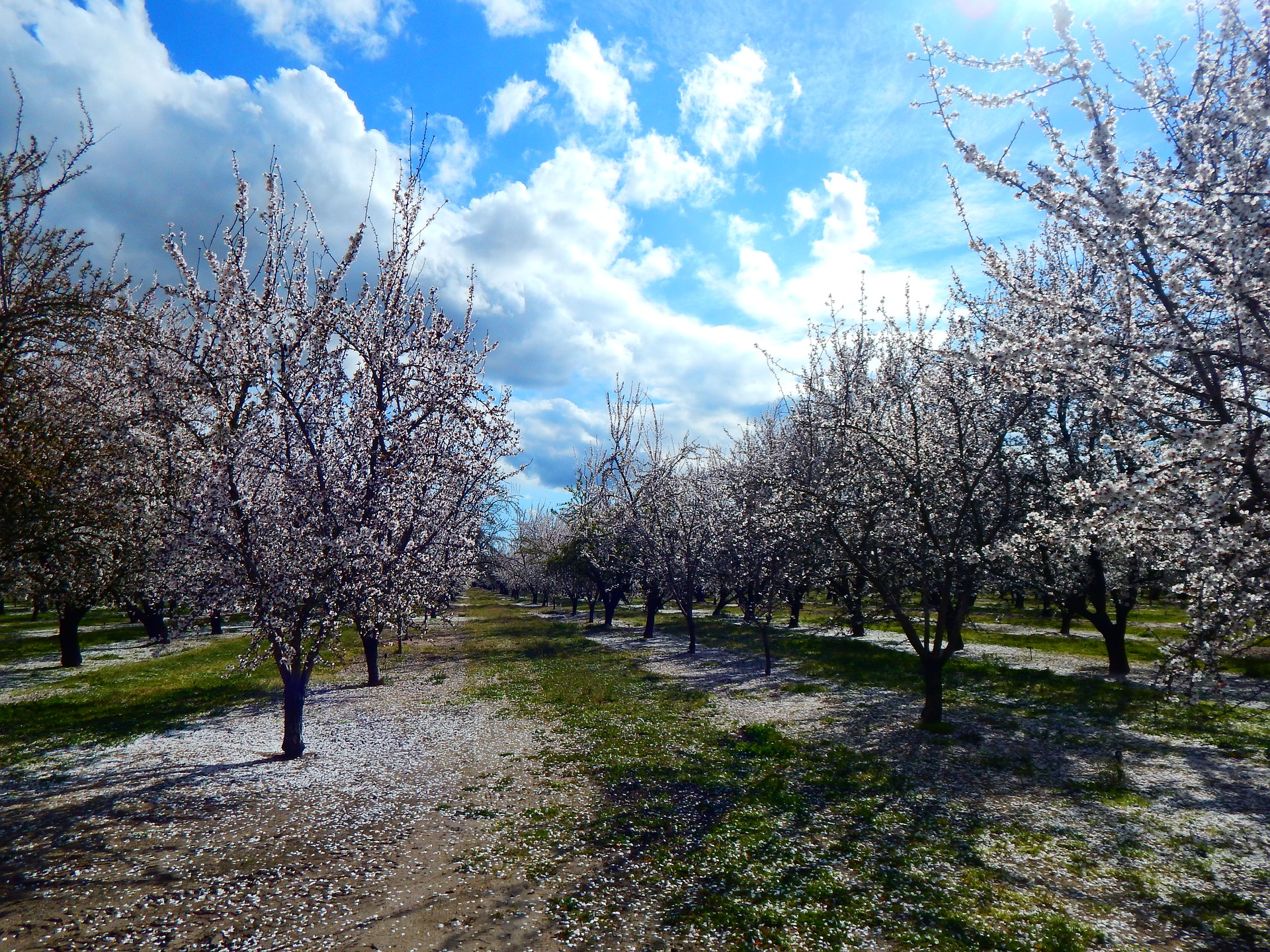
A special tribute to fruit growers!
With the help from small-scale orchards and organizations including the Home Orchard Society and Green Lents, Community Orchards Month this April brings fruit growers together for a month full of learning, planting and enjoying fruit harvest!
Here are the types of fruit in the United States that home growers can sow and grow in April:
- Melons
- Raspberries
- Blackberries
- Strawberries
In Canada, most of the fruit cultivated belongs to the rose family. These fruit species include: apples, pears, peaches, nectarines, plums, prunes, cherries and apricots.
April is the perfect time to grow all of your Summer favorites like watermelon and to jazz-up plain cheesecakes with fresh fruit!
Last year, Portland Fruit Tree Project's program manager, Bob Hatton, offers these growing tips to grow fruit trees; and these tips still apply today:
Put some time into planning. The thought of future bounties of fruit can be intoxicating and leads many of us to hasty plant selections. Keep in mind that your new fruit trees will be around for many years to come. Selecting the right tree for the right place is key. More important, fruit trees need lots of light, at least six hours per day, during the months when the tree is leafed out.
Know your rootstock. Many fruit trees are grafted on rootstocks that are selected for specific traits. Reputable nurseries will be able to tell you what rootstock your tree is growing on. This is the most important factor for determining how tall your tree will get.
Select appropriate varieties for our climate. We are fortunate that so many fruit trees grow well in the Portland area. However, some types of fruit trees are more susceptible to pests and diseases. Be prepared to spend more time and/or money caring for your tree if you select susceptible varieties or be prepared for a lower quality of fruit from your harvest. You can avoid that conundrum by choosing types of trees such as fig, persimmon, and quince that have less issues with pest and disease pressure in the Portland area. If you're selecting an apple tree, look for resistance to Apple Scab.
Plant fruit you want to eat but try new ones too. A mature fruit tree can put out hundreds of pounds of fruit. Be sure that you choose a variety that you enjoy eating.
Diversify your yard. Plant a variety of native, medicinal and non-invasive understory plants. Attracting beneficial insects, including pollinators, to your yard will help promote good tree health and better fruit set.
Water your trees. While we get many months of moisture here in the Portland area, our summer months are very dry and sometimes very hot. Fruit trees less than 4 years old should get 5 to 10 gallons of water each week during the dry months. Older trees will need some water during the hotter weeks and older trees that are planted in an area with less water access, such as those adjacent to a paved area, will need more consistent watering.
Prune your trees. Correct and consistent pruning will keep your tree at a manageable height and will maintain adequate air flow and light penetration to ripen up your fruit and help your tree fend off diseases. Look for seasonal pruning workshops from Portland Fruit Tree Project and other organizations.
Mulch your trees. We recommend the rule of three. Leave a space of 3-inches around the trunk of your tree, spread mulch 3-inches thick and mulch a radius of at least 3 feet around your tree. Mulching will help your tree with water retention and minimizes competition from grass. It also provides a slow-releasing form of organic matter for the soil and nutrients for your tree.
Have fun and share the bounty. Growing fruit trees can be an extremely fun and rewarding activity. It's truly delightful to harvest and taste the first fruit from fruit trees that you have grown yourself. In a few years you may have more fruit than you can eat. Take advantage of this by sharing the harvest with friends and neighbors, and build community along the way.
Deerbusters Tips for Wildlife Orchard Management
 Deer love the sweet taste of berries; and if given the chance, they will indulge your berry bushes and fruit trees with pleasure. There are a few things you can do to protect your fruit gardens from wildlife including:
Deer love the sweet taste of berries; and if given the chance, they will indulge your berry bushes and fruit trees with pleasure. There are a few things you can do to protect your fruit gardens from wildlife including:
- Install a Deer Fence around fruit gardens. You would be surprised how often we hear growers tell us that they don't have a fence to protect crops. Deer fencing is the #1 most effective means for deer control!
- Deer aren't the only wildlife species that love fruit. Birds will attack fruit trees and berry plants, if able. This is why we recommend that homeowners drape bird netting over bushes to protect fruits and enforce bird control. A bird net will also keep out deer from indulging.
- Lastly, all-natural deer repellents will protect home orchards from deer and rodents. One taste will leave the deer with a rather unpleasant taste and will send them elsewhere for food.
This Community Orchards Month, we encourage everyone to thank a fruit grower and appreciate their hard work with every bite of juicy fruit!
